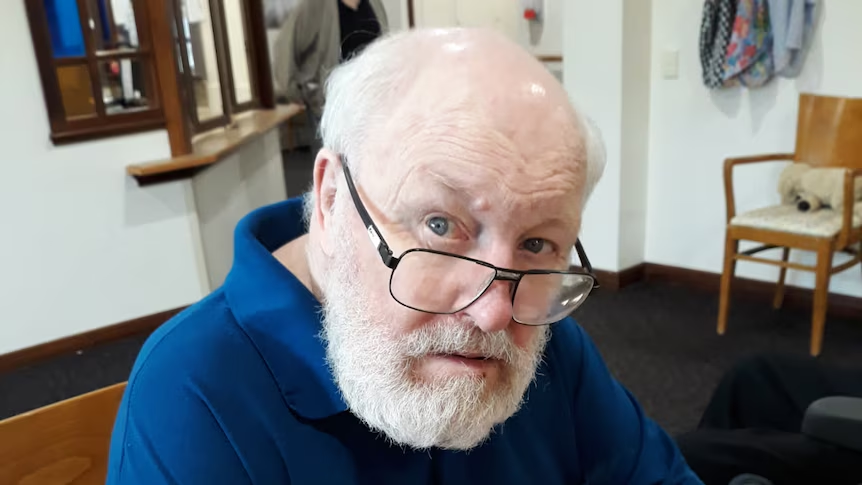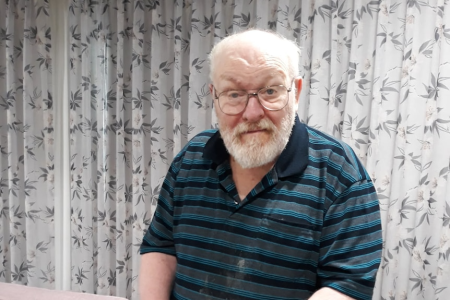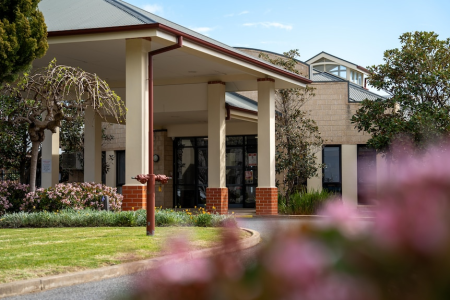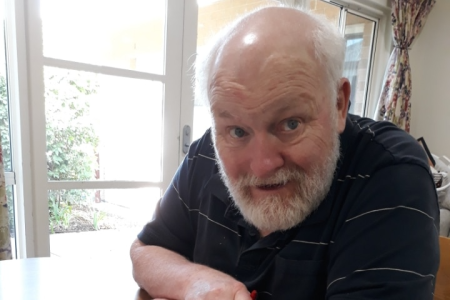
A nursing home resident known to wander and ingest foreign objects died after choking on ribbons at a facility in Adelaide's north, an inquest has heard.
Ronald Maine, 71, was living in a secure unit at Helping Hand nursing home at Mawson Lakes when a staff member noticed he was pale, clammy and had blue fingertips after consuming morning tea on September 27, 2022.
Counsel assisting the coroner, Rebecca Schell, told the court Mr Maine had been diagnosed with frontotemporal dementia five years earlier, and had been assessed by Dementia Support Australia as having a high risk of choking.
She told the court Mr Maine had placed inedible object in his mouth, including clay and pearl beads, on three separate previous occasions.
On the morning he died, Ms Schell said nursing staff had sat him in a chair and put an oxygen mask on, but it was not until paramedics arrived that his airways were cleared and CPR performed.
"He was immediately repositioned to the ground and CPR was commenced," she said.
"Prior to CPR, Mr Maine's oral cavity was swept out and food and fabric ribbon were discovered.
"In total SAAS (South Australian Ambulance Service) officers removed three different pieces of fabric ribbon of varying colours from Mr Maine's airway."
Mr Maine was then transferred to the Lyell McEwin Hospital where he died later that day.
Ms Schell said that Mr Maine's cause of death was determined as upper airway obstruction by food and foreign material on a background of frontotemporal dementia.
"Put simply, it is anticipated the court will hear that Mr Maine choked to death on the ribbons and food material that he had ingested," she said.
She said Helping Hand had completed an internal investigation after the incident and made its own recommendations about basic life support and choking training for all nursing staff.
"There is no doubt that those who performed first aid on Mr Maine, did so to the very best of their abilities, in what I understand was a very stressful situation for them," she said.
But, she said the inquest would examine the training provided to staff before and since the incident and whether Mr Maine's death could have been prevented.
"Ultimately, the inquest will consider the issue of whether appropriately administered first aid could have prevented the death of Mr Maine," she said.
"This inquest will explore whether nursing staff in aged care facilities are receiving sufficient training in the provision of basic life support.
"This, in turn, may equip them to execute their duties in emergencies."
She noted State Coroner Emma Roper, who is presiding over the inquest, may not be able to make a finding about where the ribbons came from.
She said Ms Roper may consider making a recommendation, when she hands down her findings at a later date.
That would be it is "vital that nursing staff have access to and undertake regular basic life support training to ensure they can provide and execute the appropriate level of care to residents in aged care facilities in the event of an emergency."
Tendency to Ingest Inedible Items
The enrolled nurse who first noticed Mr Maine was unwell, Juvy Rakoia, said she realised he was "sweaty all over" and had blue fingertips after she grabbed his hand to lead him to a chair.
She said Mr Maine was known as a wanderer with a big appetite, and staff knew from his case notes and handover discussions between staff that he had a tendency to place inedible objects in his mouth.
"It's common knowledge that Ron would sometimes be ingesting things that are not food," Ms Rakoia said.
She told the court that upon noticing Mr Maine was unwell she called for another staff member, registered nurse Zijad Softic.
She said she checked Mr Maine's airways but could not see anything before an oxygen mask was applied.
"We checked his mouth, we swipe it out, there's nothing anywhere," she said.
She said because Mr Maine did not have teeth or dentures "so you can clearly see there was nothing in his mouth".
She said she did not think he was choking because "from what I know, choking you would be gasping for air, coughing something, he wasn't … doing all that".
"He was eating throughout the day so I wouldn't really think there was any obstruction, I couldn't see anything," she said.
During the triple-0 call, which was played to the court, Ms Rakoia explained that Mr Maine was pale, "very sweaty" and that he was breathing, but abnormally.
She also told the operator there was no defibrillator available.
Mr Softic then took the phone and told the operator he could not do CPR because Mr Maine was still breathing.
"He's basically, what I can see, he's dying but he's still breathing, probably 6-10 [breaths] a minute," he said.
He said he was reluctant to move Mr Maine from the chair.
"I can't do any resus because he's still breathing," he told the operator.
Family Tribute
Outside court, Mr Maine's daughter Jessica, said her father was a "huge Crows fan" who was "actually really happy before he passed away".
"Dementia made him a lot more smiley than previously," she said.
She urged families to carefully select aged care for their loved ones.
"If you can't get care from an aged care home, then how can you be sure that your family is going to be safe," she said.
"I think people need to be aware that you really need to have a look around and find a good home for your families."
The inquest is continuing and is expected to hear from other witnesses including a paramedic and an expert geriatrician.
Written by Jordanna Schriever, ABC News.










